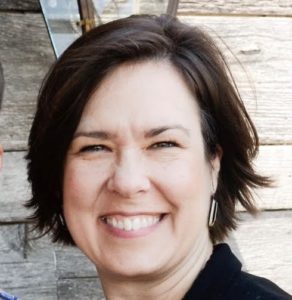Authored by Beth Lindley, L.C.S.W.
Publisher’s note: This is the third in a series of three blogs written by graduates of the CFC Post-Graduate Training Program.
I had little understanding of Bowen Family Systems Theory prior to attending the Winter Conference in 2012, where two faculty members presented on “Getting Ahead At Work.” They talked about managing self—not other people—and operating from a clear sense of values and principles. The ideas were simple, but also profound and they helped shift my thinking from focus on others to self. From that time on, I began to question my ideas about work (and family) that I had previously thought of as “dysfunctional or unhealthy,” (thinking I had nothing to do with it) and began instead to understand these ideas as normal functions of a system. I was intrigued by the application of Bowen Theory to a leadership approach in a faculty member’s business. I also recall my sense of wonder after watching another faculty member present about her family of origin, in which she described asking her parents to record themselves answering questions about family facts. I marveled about whether my own parents would ever be so supportive.
Seeing both a personal application and another, which had direct relevance to managing self in a professional system, attracted me to learning more about the theory. After participating in a family of origin group, I learned about the Post-Graduate Training Program and I recognized how further study of concepts and application of the theory would help me as I moved forward in my family work as well as my professional evolution. I am so glad that I enrolled, because I have been able to establish more effective person to person contact with each member of my family of origin and (occasionally) manage my part in active triangles with my parents and siblings. After learning more about my own family facts, and asking my family to help with this, I have been able to experience relating to my parents in a new way that isn’t as anxious or intense.
I am certain that my relationships at work have often been a medium for satisfying emotional needs and I have managed anxiety with over-closeness, triangles, and over/under-functioning. After spending time learning about my family of origin and my place in that family system, I understand now why it felt normal to work in systems where, for example, a dominant authority emphasized “getting along,” over resolving open conflict, much like the emotional process of my family system. In my new role as a manager, I can now manage myself with greater intention and calm when I am clear about my values and understand my role in the emotional systems at play.
The theory has provided me with a truly useful framework for managing myself in my personal life and professional practice. The training program is an accessible, intriguing and enriching opportunity to learn from professionals who have done their own personal work as well as applied it in effective and supportive ways with their clientele and colleagues. Not only is this an opportunity to take a deep dive into this unique scientific theory, it also provides space to cultivate self-care and personal development. This program is tremendously helpful, whether for personal growth and learning, or for clinical and professional application.




Leave a Reply